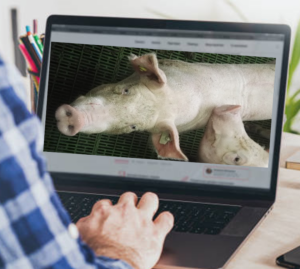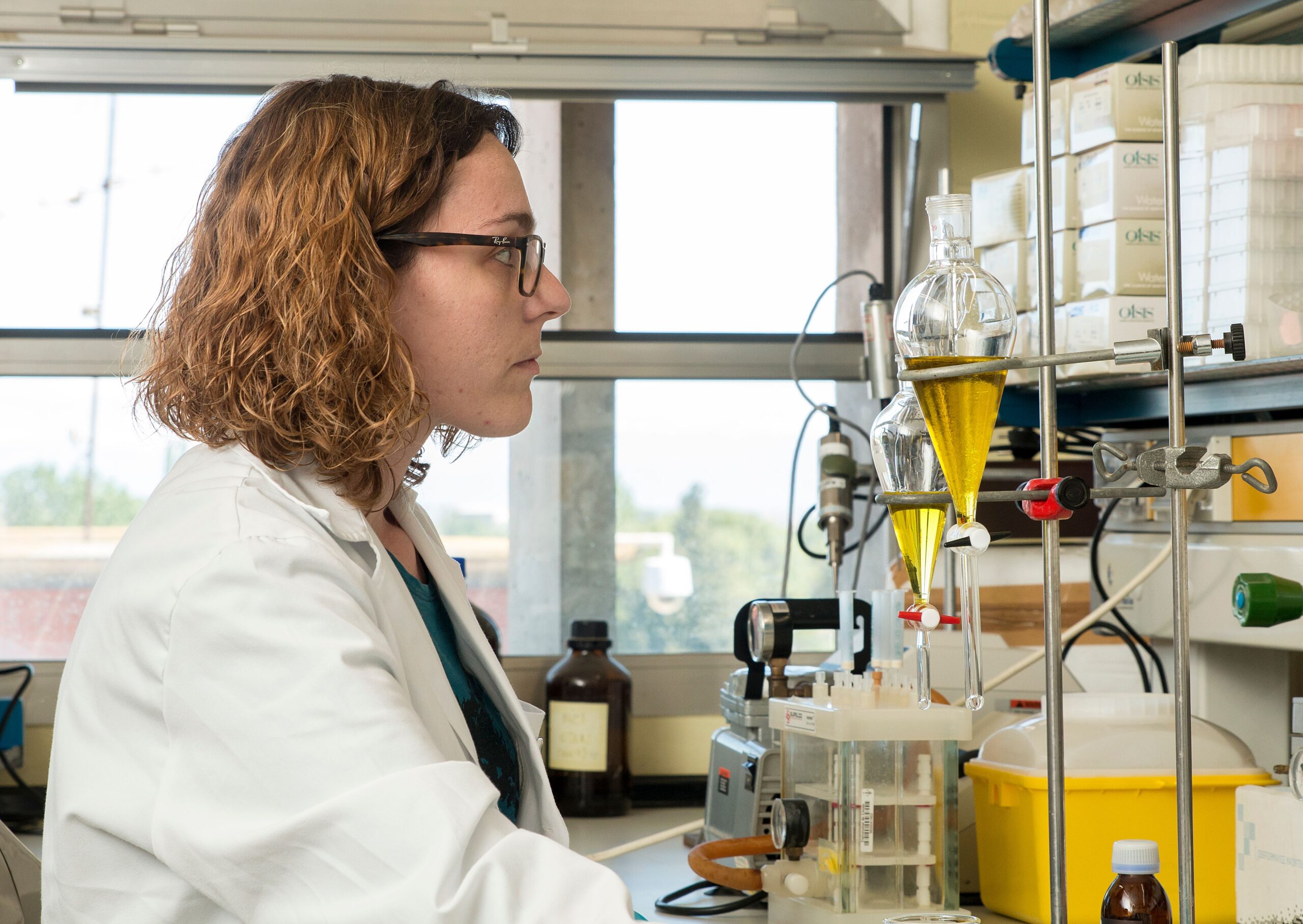- The Foundation encourages its scientists to collaborate with other researchers at the UdL
- The initiative includes a project on the importance of women in the preservation of agrobiodiversity and the promotion of e-commerce in the pig sector

The CERCA Agrotecnio center is promoting six transversal projects of its main researchers to collaborate with the departments of Law and Economics and Business of the University of Lleida. The aim of the center is to explore new avenues of collaboration between researchers from the two institutions, to open up new fields of application for the research promoted by the Foundation and also to complement the Foundation’s agri-food sector research with the research in agri-food law carried out by the University of Lleida.
As the director of Agrotecnio, José Antonio Bonet, explains, ‘the collaboration between the two institutions is a step forward in Agrotecnio’s interdisciplinary approach, fulfilling its strategic desire to be able to provide a comprehensive response, on its own or in collaboration with other entities, to the main challenges facing the agri-food sector’.
For its part, the Department of Law of the University of Lleida stands out in the promotion of legal research in agri-food matters, where some groups already have a recognized track record, as one of its strategic lines. As César Cierco, professor of Administrative Law at the UdL, explains, ‘the department is convinced that promoting the fusion and cohesion of legal studies with the agri-food world can represent an important leap in quality, knowledge and reciprocal enrichment for both institutions and their researchers’.
The projects will be developed during 2025 and have a mixed working team, with a head of Agrotecnio and a head of the Law Department. Most of the Agrotecnio researchers are also professors at the University of Lleida.
The initiatives finally selected are: ‘Trufficulture: agricultural or forestry crop? ‘The study of the legal implications of the non-compliance of EU members with the European Parliament’s ruling on genetically edited crops’; “The role of women in the conservation of agrobiodiversity in Tolima (Colombia)”; “The digital challenge of the pig sector: presence on the Internet”, “Impact of Antibiotic Reduction Policies on the Health and Welfare of Dairy Cows” and “OliSost: sustainability parameters in the extra virgin olive oil value chain and strategies to ensure its communication”.
The importance of women in the preservation of biodiversity
Led by researchers Joel Segarra (Agrotecnio) and Débora Presta (UdL), this project is located in the Colombian region of Tolima, which is characterized by its cultural and agricultural diversity but currently faces significant challenges due to environmental degradation, climate change and land ownership. In this context, rural women have emerged as key actors in the preservation of traditional seeds, in the management of agroecological practices and in the transmission of intergenerational knowledge about agricultural biodiversity.
But despite their importance, the role of women has often been underestimated, made invisible or relegated to the background in public policies and academic studies. This project seeks to analyze the role of women in this area, highlighting their knowledge, practices and challenges. It aims not only to document their contribution, but also to generate legal frameworks for inclusive public policies that value their work and promote agricultural sustainability.
The digital challenge in the pig sector
When we talk about the digital challenge in the livestock and pig sector, we often think of sensors and automation that make work easier for farmers and companies in the sector. Sometimes it is not taken into account that the presence on the Internet is increasingly important for companies, both to do business and to create an image.
In this project, Lluis Miquel Pla (Agrotecnio) and Eduard Cristóbal (UdL) will analyze the presence of companies from the pig sector on the Internet and determine the degree of maturity of e-commerce in this area, in order to be able to specify actions and measures so that companies can strengthen and improve their competitiveness.
Are truffles an agricultural or a forestry crop?
This axiom is the one that researchers José Antonio Bonet (Agrotecnio), César Cierco (UdL) and Eduard-Valentín Pavel (UdL) will try to resolve. Truffle cultivation using host trees inoculated with the fungus is one of the most profitable activities in rural areas. In fact, Spain is currently the world leader in truffle cultivation with a growing percentage of production from plantations.
The use of trees installed on agricultural land raises the question of whether truffle cultivation is agricultural or forestry, especially now that the management techniques applied are increasingly intensive.
Whether it is an agricultural or forestry crop is a relevant question, as it may entail the possibility of tuber cultivation being a subsidized activity and also entails different potential marketing routes for the product. The resolution of this diatribe from a legal point of view can be a crucial step forward in the consideration of the crop by administrations and producers.
New regulations for the olive oil value chain
The entry into force of several European and national regulations on environmental sustainability will mean that companies will need to adapt and transform their approach to sustainability, with the aim of moving towards production that is more aligned with the 2030 Agenda. These regulations will affect the entire olive oil production value chain, because olive oil bottling and distribution companies will be required to be highly transparent in this area.
The heads of this project, Adela Pagès Bernaus (Agrotecnio), Eimys Ortiz Hernández (UdL) and Rosa Mi. Florensa Guiu (UdL), will work to identify the regulations to be applied in the different phases of the extra virgin olive oil production value chain in order to comply with the established sustainability criteria. They will propose strategies and instruments for extra virgin olive oil cooperatives and operators to contribute to sustainability. They also aim to provide possible information and communication systems to make the whole process more transparent.
Less antibiotics for dairy cows
Irina Garcia Ispierto (Agrotecnio) and Laura Salamero (UdL) aim to assess the impact of the policy and regulatory framework that promotes the reduction of antibiotics in high production dairy farms in the province of Lleida from a global health perspective, taking into account the One Health concept promoted by the WHO. They want to focus both on animal health and on the implications for the practice of veterinary professionals and producers.
The researchers start from the hypothesis that the implementation of regulations requiring a reduction in the use of antibiotics can lead to undesirable changes in veterinary practices, negatively influence animal health and welfare and, by extension, public health, and have a negative impact on the economic sustainability of livestock farms.
European legislation on genome-edited crops
Teresa Capell and Paul Christou (Agrotecnio) and Antoni Vaquer and Lourdes Salomon (UdL) will study the legal repercussions of the non-compliance of some EU members with the European Parliament’s legislation on genetically edited crops. Some countries are resisting the implementation of this ruling, and this is affecting gene editing research globally. Researchers will explore how this regulatory conflict impacts on all member states, whether it can lead to de-harmonization despite the single market claim, and how it can lead to state liability.

